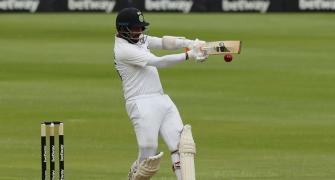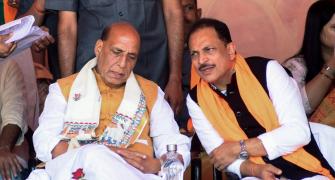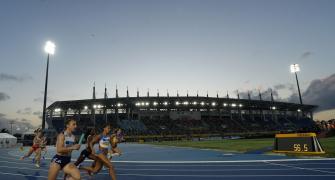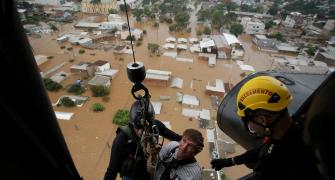The annual meeting of the International Monetary Fund and World Bank is feeling the tremors of the collapse of the trade talks in Cancun.
Under pressure from finance ministers of developing countries, the International Monetary and Financial Committee, which met on Sunday, directed the president of the World Bank and the managing director of the IMF to prepare a report on the stakes involved for both developing and developed countries in pursuing trade reforms.
IMFC chairman Gordon Brown, who is also the Chancellor of the Exchequer of the UK, said the report would be sent to the heads of state, finance and trade ministers of all countries.
"The international community must make urgent progress," he said at a press conference after the meeting. He added that developed countries should move forward in reducing trade-distorting subsidies without delay.
IMF Managing Director Horst Kohler said the idea was to "describe the well-known benefits free trade will bring to poor and advanced countries alike."
Kohler added that the issues of development and poverty alleviation were linked to progress in trade talks.
At the IMFC, ministers today urged a speedy resumption of the Doha Round with focus on market access and a reduction of trade-distorting subsidies in all areas, particularly agriculture.
Kohler said the IMF would assist developing countries to address the transitional impact of trade reforms on their economies.
The World Bank Development Committee, scheduled to meet tomorrow, will also take up the issue of enhancing the voice and participation of developing countries.
What is striking is the multilateral institutions' new found boldness. They are clearly asking the developed countries to do their bit in facilitating global trade.
The failure at Cancun and the dogged resistance put up by developing countries to the attempts by the European Union and the US to push their agricultural plan, only justifies the agenda of the two committees to discuss more voting rights for developing countries.
Senior Fund-Bank officials said the failure of Cancun had brought the simmering discontent within the developing countries to the fore.
"Trade is very important to our core concerns of development and macro-economic stability," an official said.
Addressing a press conference after being appointed World Bank chief economist on Friday, Francois Bourguignon said, "It is certainly very difficult to imagine that the World Bank will not say something loud to developed countries."
He was responding to queries if the multilateral institutions would prevail on the US and EU to cut farm subsidies, estimated at a huge $300 billion annually. Bourguignon, a French national, replaces India-expert Nicholas Stern.
Stern is leaving the Bank to become the Second Permanent Secretary and Managing Director, Budget and Public Finances at the Treasury of the UK.
Bourguignon has been a pioneer in studying the links between growth, poverty and inequality.







